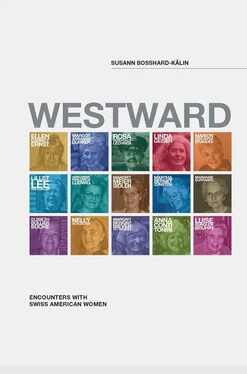Leo Schelbert - Westward
Здесь есть возможность читать онлайн «Leo Schelbert - Westward» — ознакомительный отрывок электронной книги совершенно бесплатно, а после прочтения отрывка купить полную версию. В некоторых случаях можно слушать аудио, скачать через торрент в формате fb2 и присутствует краткое содержание. Жанр: unrecognised, на английском языке. Описание произведения, (предисловие) а так же отзывы посетителей доступны на портале библиотеки ЛибКат.
- Название:Westward
- Автор:
- Жанр:
- Год:неизвестен
- ISBN:нет данных
- Рейтинг книги:3 / 5. Голосов: 1
-
Избранное:Добавить в избранное
- Отзывы:
-
Ваша оценка:
- 60
- 1
- 2
- 3
- 4
- 5
Westward: краткое содержание, описание и аннотация
Предлагаем к чтению аннотацию, описание, краткое содержание или предисловие (зависит от того, что написал сам автор книги «Westward»). Если вы не нашли необходимую информацию о книге — напишите в комментариях, мы постараемся отыскать её.
Westward — читать онлайн ознакомительный отрывок
Ниже представлен текст книги, разбитый по страницам. Система сохранения места последней прочитанной страницы, позволяет с удобством читать онлайн бесплатно книгу «Westward», без необходимости каждый раз заново искать на чём Вы остановились. Поставьте закладку, и сможете в любой момент перейти на страницу, на которой закончили чтение.
Интервал:
Закладка:
It was not only the New York winter that was hard for Rosa. “No one told me be careful, don’t do that, this is a bad area.” Since she was accustomed to a nomad’s life from her childhood, she rented one furnished room after another until she finally found a studio apartment on 46 thStreet between 2 ndand 3 rdAvenue. “The first thing I bought was a sleeper sofa, and in a junk shop I got dishes and some old pans. Again, I was looking for work.”
When Rosa was hired as a secretary at the Caltex Petroleum Company in 1961, the job came with the condition that she must take courses in economics at a college. “This was not at all easy. When I applied at one of the colleges of the City University, I was told that I hadn’t even finished secondary school in Switzerland. The admissions officer cited a book that said that children in Switzerland didn’t go to school during the entire summer because they had to help with making hay! My grade reports didn’t convince her either. I was forced to write to the Department of Education in Washington which eventually confirmed that my schooling in Switzerland was equal to one fourth of the courses for a college degree; and this paved the way for me.”
Rosa wanted to stay in America. “The country took me in. No one said that because you are a woman, you can’t do this or that.
The decision to continue my academic education brought me significant personal and professional gains. Of course, I could have earned good money as a secretary. But I was fascinated by the academic world. It is also important that each person furthers his or her own personal and intellectual development. In Switzerland I would have had to take all the courses to pass the Matura [the final exam that garantuees students entrance to university studies] in order to be allowed to engage in academic studies.”
From 1961 to 1967 Rosa buckled down to work and studies without interruption. “From 9 to 5 I worked in the office, in the evening I was at school.” Her hard work paid off. In 1966 she earned a Bachelor of Science from Columbia University, in the same year she became an American citizen, and a year later she earned a Masters in Economics and a bit later a Masters in Education. “It was hard. I don’t know how I did it. How I envied the people who were able to go home at 5 p.m. while I was taking the subway to attend lectures. I am very ambitious and had the feeling that I could only advance if I earned an American degree.”
And what about her free time? “On Saturday evenings a friend invited me to a juicy steak for $4.95. And in the few weeks when I didn’t have courses or exams, I visited my mother in Switzerland.” From the beginning Rosa had the goal to get to know one new person every day. “Sometimes I succeeded. I was alone, but not lonely. You cannot expect that people approach you first. I always found my way.” And then her being alone suddenly was over.
“Edmund Schupbach was my coworker at Caltex, an accountant and very shy. I had noticed him for some time already, but he made no move until he invited me for dinner in January of 1967.” Again and again they went out together. “At first we kept it a secret in the office.” In April it was clear to Rosa – “he is the one.”
During the semester break at the end of 1967 they were married on the campus of Columbia University. “Ed Schupbach was a New Yorker and despite his name had no Swiss roots. He and I scraped together all our savings and bought an apartment for 34,000 dollars on 74 thStreet between 5 thand Madison Avenue, not far from Central Park.”
After only six years of married life Ed died of a pancreatic illness. Rosa was 45, a widow, alone again. “I was forced to find a new direction for my life. Should I return to Switzerland? No, that was out of the question. At my age I would hardly have found a job. Mother would have been happy. Yet with work and a college education I had developed my life here, and America had become my home.” Rosa had not worked during her marriage, now she worked in various temp positions, then was for a time assistant to a retired economics professor from Princeton, and later was employed by a brokerage firm. “I wanted to be free, to be able to travel, to visit my mother as often as possible. In 1993 she peacefully died in her sleep at the age of 100. Fortunately I was with her when she died.”
Though Rosa went to many cultural events, she did not like the evenings she spent in her New York apartment. “This was not good for me; I felt empty and had to find something meaningful to do.”
On a Saturday morning she came by chance across a police van with a team that was recruiting volunteers for the auxiliary police in her neighborhood. “Working for the police, why not? I said to myself and filled out an application. A few days later I received a call from the police station of my district; was I still interested? Of course I was.”
Five months of education and training followed, a course in self-defense and then the exam at the New York Police Department. In the summer of 1980 Rosa Schupbach was accepted as an auxiliary police officer for her district, which is one of the most densely populated areas of the United States and has 250 regular police officers and 90 auxiliary officers.
“20% of the team are women. In the five boroughs of New York there are about 38,000 regular and 6,000 auxiliary police officers, both men and women. The auxiliary officers support the regular police force. We are not paid and are not allowed to patrol the streets after 11 p.m. without special permission because we do not carry firearms.” But they do have bulletproof vests. Rosa has her own bulletproof vest made to measure. “I wear the same uniform as all New York police officers but with a different emblem on the sleeve. We are equipped with walkie-talkies and are connected to Police Headquarters as well as to all the regular police patrols in the area.” For her defense she carries on her belt a wooden nightstick, which is 25 inches long and two inches thick. “Using it is allowed only if our own life is in danger, if we cannot flee, or if someone else is in serious danger.” In all the years Rosa has provided well over 5,000 unpaid hours of service as auxiliary police officer. She is not only the oldest, but also the most senior auxiliary officer in her police precinct. “I have never been afraid, just like my father. He was not afraid of anything or anybody. But I am never rash. I always keep my eyes open. I am a woman of a certain age; people don’t get too close to me. I walk right up to people. Once I am about a foot away from them, they begin to retreat so that there is no need to touch them. This is simply due to my determined manner. Anyone who physically attacks a police officer in New York will be arrested and goes to jail. I patrol the streets either on foot or in a police car, in summer and winter, in every kind of weather. Winter nights in New York are bitter cold! We are also in action at parades and street markets, we help with accidents, and block streets, for example when there is a fire.”
For Rosa, the New York marathon is the high point of the year in her police work. “I am usually stationed in one of the Red Cross tents where the runners come down from the bridge on 59 thStreet. I also help as translator for Europeans who are having cramps, blisters on their feet or urgently need an aspirin or some words that will encourage them to persevere to the end.”
A day she’ll never forget is September 11, 2001. “Shortly after 9 a.m.. friends from Switzerland called to see if I was still alive. I had no idea what had happened! The shock came a few seconds later when I turned on the TV. A while later a colleague urged me not to go to our police station; he wanted to make sure that I would not be sent to Ground Zero. To be honest, I was grateful to him. A Swiss woman I knew perished in the tower. The mood in New York was similar to that when President Kennedy was assassinated, horrible.” Rosa’s voice is very low. “The stench of burned plastic and burned corpses and yellow dust lay over the entire city for weeks. For ten days I was on almost uninterrupted duty. Fortunately it was in my district and not in downtown Manhattan. We had to block the street where the Fire House, the Police Precinct, and a Jewish synagogue are located. The people were all on the streets – shocked, traumatized, they wanted to talk. I had to help protect the roadblocks, to calm people, often simply listen to them, to be there for them. I barely had time to go home and get some sleep. We all shared a common destiny; New York has changed since then. The thought that something similar could suddenly happen again is always present in the back of my mind, and will probably never go away. Airplanes or helicopters over the city cause my heart to beat faster every time. 9/11 has changed the life of all of us. But New Yorkers always know how to adapt and how to find the positive in life. I fit in here very well.”
Читать дальшеИнтервал:
Закладка:
Похожие книги на «Westward»
Представляем Вашему вниманию похожие книги на «Westward» списком для выбора. Мы отобрали схожую по названию и смыслу литературу в надежде предоставить читателям больше вариантов отыскать новые, интересные, ещё непрочитанные произведения.
Обсуждение, отзывы о книге «Westward» и просто собственные мнения читателей. Оставьте ваши комментарии, напишите, что Вы думаете о произведении, его смысле или главных героях. Укажите что конкретно понравилось, а что нет, и почему Вы так считаете.












